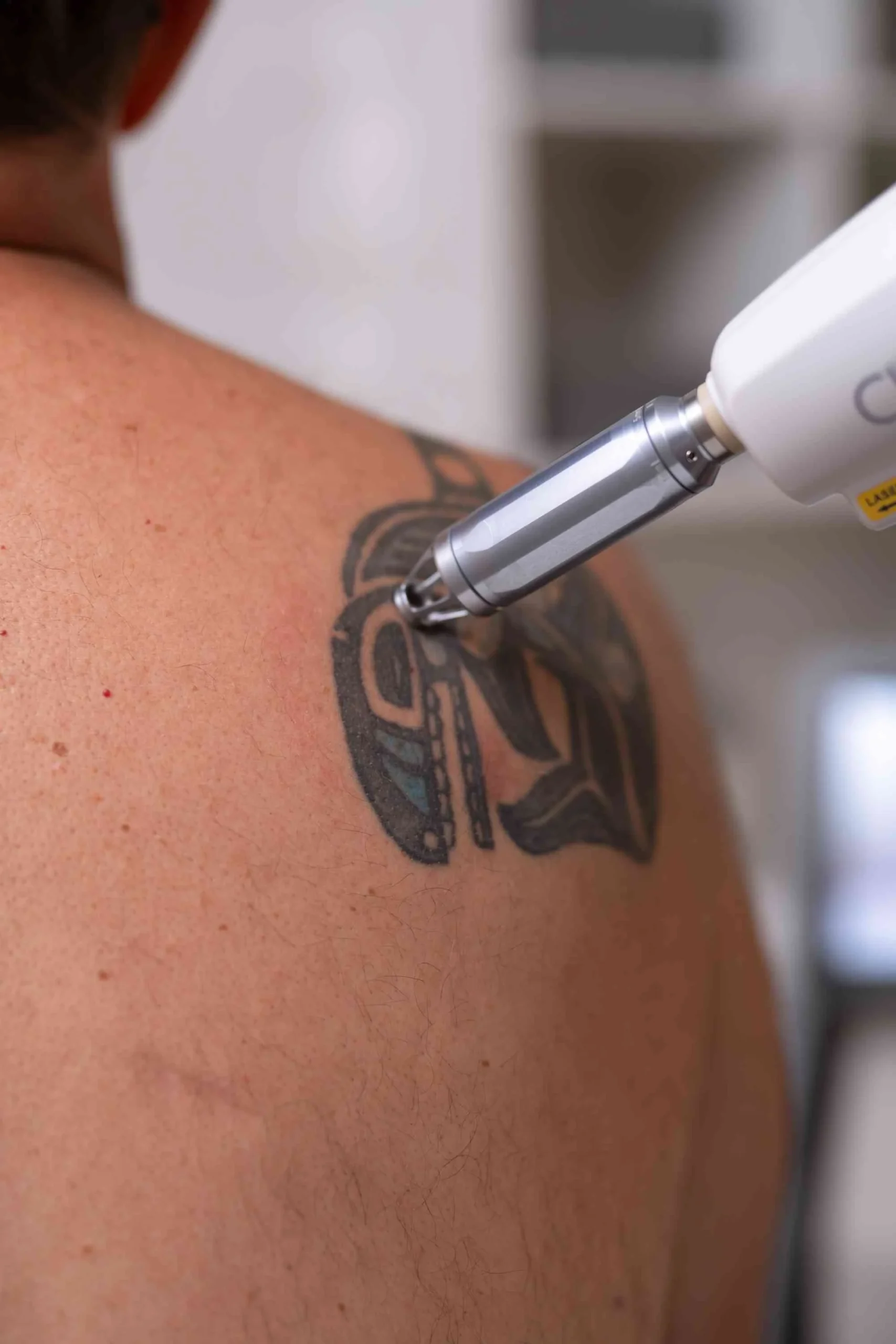
Tattoo reduction employs a Q-switched Nd YAG laser at 2 different wavelengths: 532nm and 1064nm. This type of laser is called Q-Switched. The q-switching is important, as this is a photo (light) acoustic (shock wave) type of laser. The light energy is emitted in short bursts. These very brief bursts of light create a shock wave that breaks up the very large ink particles (which cannot be absorbed by the body) into much smaller particles. With each session, some parts of the larger ink particles get broken into smaller ones. The small ones are absorbed by the white blood cells and removed from the body. Over a series of sessions, the tattoo is reduced and often eliminated.
Some colours are easier than others to breakdown and remove: black, brown, navy blue, and red are the easiest. Any colours mixed with white (pastels) are very difficult as are yellow inks and green inks. Black can often be the easiest, but in uncommon situations it is highly refractory to treatment. The white, yellow, green and some black ink can be impossible to remove. Permanent make up pigments are often fraught with difficulties – if they are mixed with iron oxides, then they can turn black. In general permanent makeup tattoos are best left alone.
Although excellent results are expected in most, like all areas of medicine, each person responds differently and no guarantees can be given.
Downtime
Local recovery 7-10 days
Discomfort
20 minutes
Procedure length
20 minutes
Session protocol
Anesthesia options are provided
Maintenance
None
Tattoo reduction requires a number of sessions depending on factors such as the size, color, and depth of your tattoo. Typically, multiple sessions are needed, spaced about 6-8 weeks apart, to achieve the best results.
Some discomfort may be experienced during the tattoo reduction procedure, but anesthesia options are available to make the process more comfortable. The sensation is often described as a snapping or mild stinging feeling.
Some discomfort may be experienced during the tattoo reduction procedure, but anesthesia options are available to make the process more comfortable. The sensation is often described as a snapping or mild stinging feeling.
Results from tattoo reduction are not immediate, as the body needs time to break down and eliminate the tattoo ink. After each session, you should begin to notice the gradual fading of your tattoo, with significant improvement after several treatments.
While tattoo reduction is generally safe, potential side effects include temporary redness, swelling, and scabbing at the treatment site. Rarely, scarring or pigment changes may occur, but these risks are minimized when the procedure is done by a skilled professional.
Some colors, like black, brown, navy blue, and red, are easier to break down and remove with tattoo reduction. However, colors like yellow, green, and certain shades of black can be more difficult and, in some cases, may not be fully removable.
Before tattoo reduction, avoid sun exposure and tanning, as this can increase the risk of complications. It’s also important to avoid taking any medications that might increase the risk of bleeding or swelling. A consultation will help determine if you are an ideal candidate for the treatment.